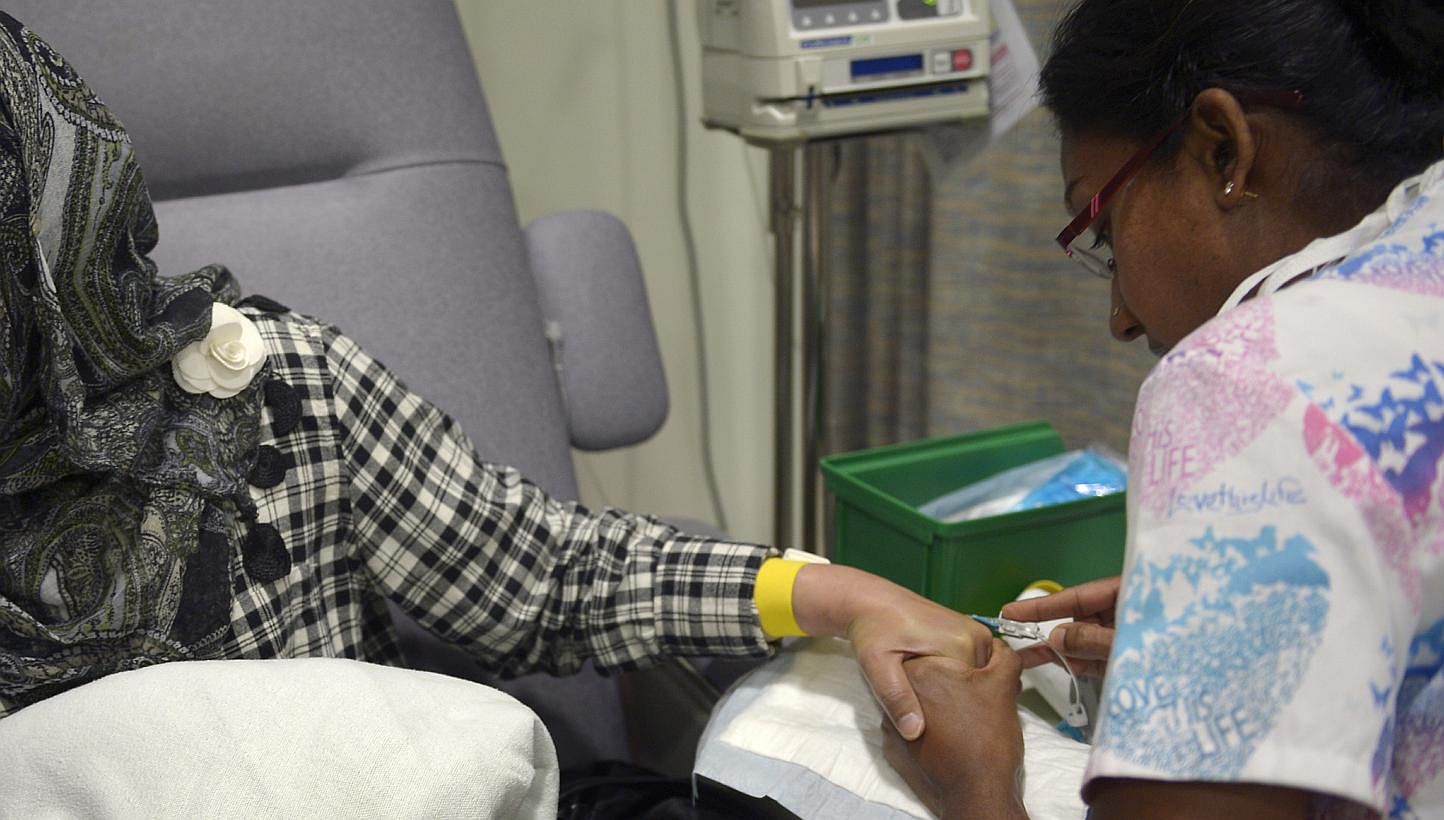Extending life not the biggest priority for late-stage cancer patients
Sign up now: Get ST's newsletters delivered to your inbox

A nurse inserting a needle into a patient's hand for chemotherapy treatment at the National Cancer Centre Singapore (NCCS). A study by the Lien Centre for Palliative Care and collaborators from NCCS has found that late-stage cancer patients would prefer to pay more to die at home, rather than to spend on extending their lives or avoiding severe pain. -- ST PHOTO: DESMOND LIM
SINGAPORE - Cancer patients at the end of the road would prefer to pay more to die at home, rather than to spend on extending their lives by one year or avoiding severe pain, according to a study by members of the Lien Centre for Palliative Care and collaborators from the National Cancer Centre Singapore.
The survey was conducted over the course of a year, among 211 patients with stage four cancer and their informal caregivers, to find out more about the end-of-life preferences of both parties.
"The healthcare system currently focuses a lot on extending life," said Professor Eric Finkelstein, who led the team from the Lien Centre in Duke-NUS Graduate Medical School, along with Assistant Professor Chetna Malhotra.
He added that patients were often unable to properly convey their alternative end-of-life preferences to their physicians, because caregivers usually act as the bridge when it comes to treatments.
"But caregivers may not be the best proxies," said Professor Finkelstein.
Indeed the survey - which asked participants to choose their most-preferred end-of-life scenarios from a series of options - found that patients and caregivers made decisions based on the same end-of-life preference only 19 per cent of the time.
By quantifying the willingness of patients and caregivers to pay to improve their end of life experience based on the results, researchers found that caregivers had a three-fold greater willingness to pay than patients, to extend life by one year.
Patients themselves, however, were only willing to pay up to $18,570 to extend their lives by a year, compared to the $31,256 they were willing to pay to die at home.
"The results highlight the importance of pain management, supporting home deaths, and addressing other end-of-life concerns, in addition to efforts to extend life," said Professor Finkelstein.
Dr Malhotra added: "We hope this research helps foster greater communication between patients, caregivers, and doctors."


